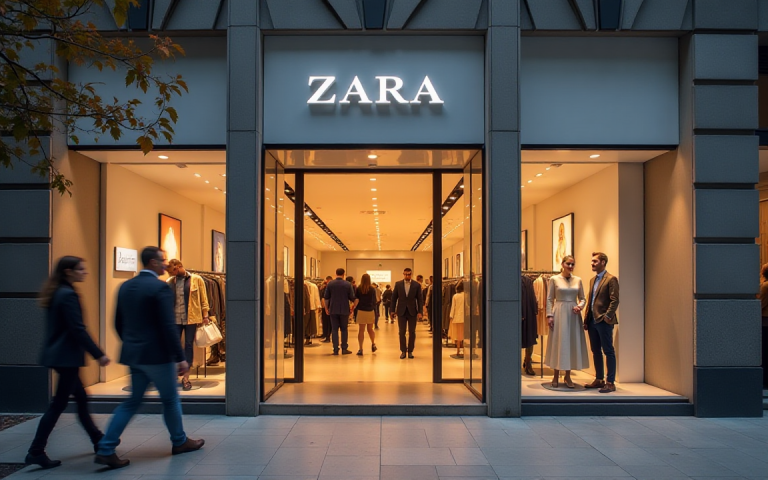The seemingly unstoppable juggernaut of fast fashion has hit a wall.
Inditex, the Spanish retail titan and owner of Zara, reported weaker-than-expected sales in its second quarter on Wednesday, a clear and worrying sign that even the industry’s most dominant player is not immune to the chill of a cautious global consumer.
The slowdown, which has sent the company’s shares tumbling 14 percent this year, marks a stark end to a four-year streak of double-digit growth and raises profound questions about the company’s ability to navigate a perfect storm of currency headwinds and tariff uncertainty.
The numbers tell a sobering story
The company’s net sales for the second quarter came in at 10.08 billion euros, a significant miss of the 10.26 billion euros analysts had been expecting, according to an LSEG estimate.
This performance underscores a broader deceleration that has been a growing concern for investors.
While the company offered a glimmer of hope, noting that the pace of sales growth has picked up to 9 percent in the first part of its autumn quarter, this is still a slowdown from the 11 percent growth it posted in the same period last year.
In a statement, Inditex CEO Oscar Garcia Maceiras acknowledged the challenges, calling the first-half performance “solid” and stating the company had achieved “satisfactory sales in a complex market environment.”
The currency crosswinds and the tariff question
Compounding the consumer slowdown are powerful and painful currency crosswinds.
Inditex warned that currency movements would now trim its sales by 4 percent this year, a more significant hit than the 3 percent it had previously projected.
The revision comes as both the US dollar and the Mexican peso have weakened significantly against the euro, eroding the value of the company’s international earnings.
This currency pressure directly collides with one of the biggest strategic questions facing the company: to what extent can it raise prices in the crucial US market to mitigate the impact of higher import tariffs and the weaker dollar?
The answer remains deeply uncertain.
A silver lining of discipline
Yet, even in this tougher environment, the report reveals a silver lining of remarkable discipline.
The company’s first-half operating profit of 3.57 billion euros was in line with estimates, a sign of effective cost management.
More impressively, its gross margin stood at a healthy 58.3 percent, ahead of forecasts.
This suggests that even as sales soften and consumers become more cautious, Inditex is successfully resisting the temptation of heavy discounting, a strategic choice that is protecting its profitability in a challenging market.
The king of fast fashion may be facing its toughest battle in years, but it is not surrendering its margins without a fight.
The post End of an era? Zara owner Inditex Q2 sales disappoint due to cautious consumers appeared first on Invezz

